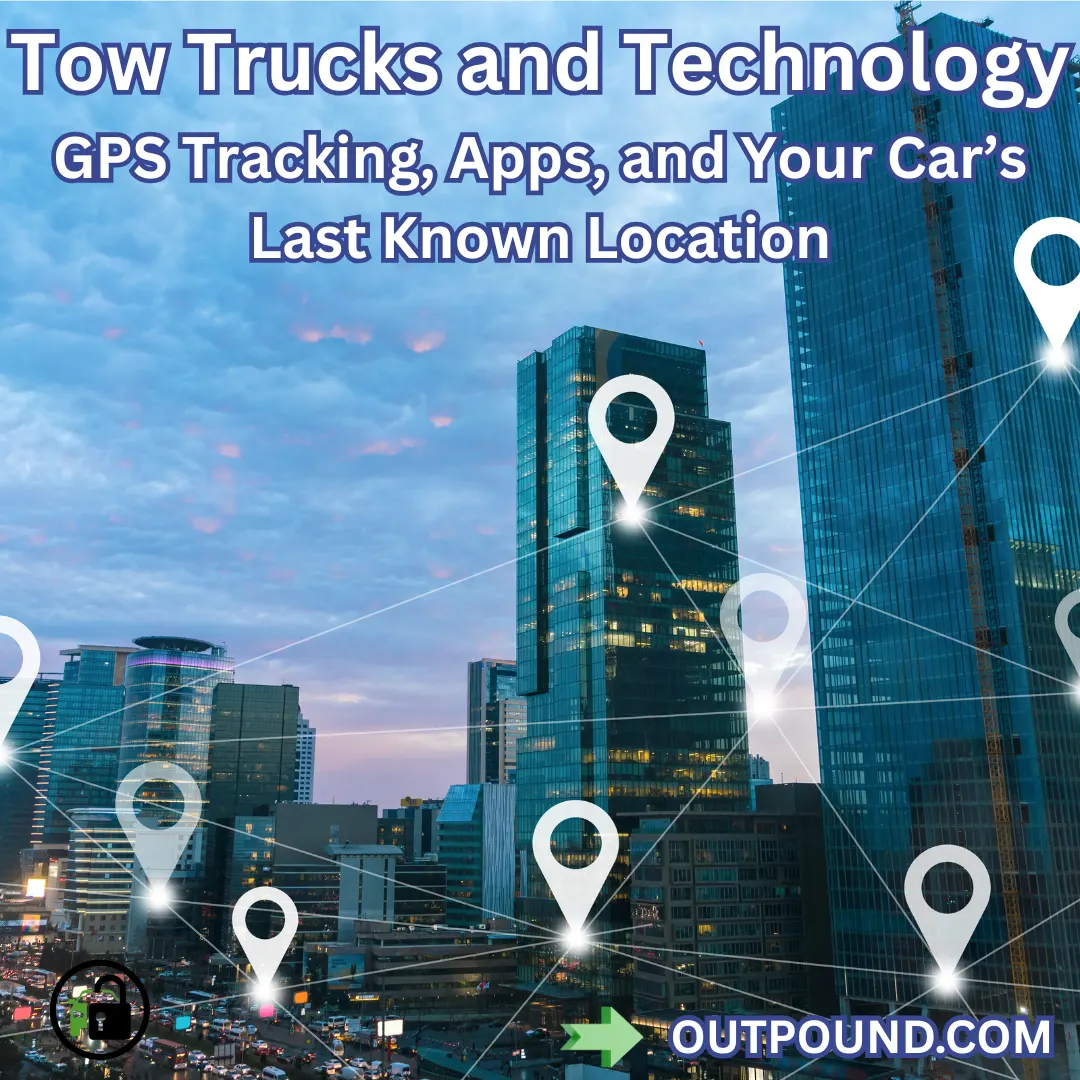GPS Tracking, Apps, and Your Car’s Last Known Location

Remember when losing your car meant wandering around a parking lot clicking your key fob like a desperate fool? Those were simpler times. Now, thanks to GPS, apps, and tracking tech, we can pinpoint a car’s exact location, unless, of course, it’s been towed, in which case all bets are off. Welcome to the new age of towing, where technology can both help you and haunt you.
The Digital Double-Edged Sword
Tow trucks aren’t just heavy machinery anymore, they’re rolling surveillance units. Modern rigs are equipped with automatic license plate readers (ALPRs), GPS systems, and mobile data terminals that record every move. Tow companies say it’s about efficiency. Reality check: it’s about tracking, billing, and defending themselves when drivers fight back.
These plate readers can scan thousands of cars per shift, feeding data into networks used by cities, debt collectors, and even repo companies. The result? A digital dragnet where your car’s every movement might be logged, long before it ever gets hooked.
The GPS Irony
Ironically, while tow trucks track you better than the FBI, most tow yards conveniently “lose” your car once it’s impounded. Call them, and you’ll get five different answers from three different employees. “It’s not in our system yet” is code for “we haven’t decided what to charge you.”
Even worse, GPS doesn’t always save you. Some carmakers offer apps that show your car’s last known location, but if it’s on a tow truck heading to a private lot, you’ll watch helplessly as the little blue dot travels across town like a kidnapped hostage.
Smart Tech, Dumb Policies
Many drivers assume that if their car has built-in GPS or connected services, they’ll automatically get recovery help. Think again. Automakers often won’t release location data without police involvement, and tow companies aren’t required to coordinate with them. Translation: your $60,000 car can broadcast its location to Mars, but you still have to call six departments and three hotlines to find it.
The App Trap
Some tow yards now boast “customer service” apps that let you check fees, upload documents, or schedule pickups. Sounds nice, until you realize these apps are designed to collect your data, not make your life easier. Many even include fine print waiving your right to dispute charges or limiting how you can file complaints.
Tow technology isn’t about transparency, it’s about control. When you use their platform, you’re playing by their rules.
How to Outsmart the System
- Use your car’s native app immediately after realizing it’s been towed. Screenshot the location and timestamps.
- Don’t rely solely on police databases—some cities take hours to update towed vehicle info.
- Track paperwork, not just GPS. The physical release form is still the golden ticket.
- Use OUTPOUND.com to cross-reference towing laws, locate your car, and confirm the tow yard’s legitimacy.
Where GPS Means ‘Gotcha
Technology has made towing more efficient for the towers. With automated scanning, instant billing, and GPS-backed enforcement, it’s never been easier for them to take your car. For drivers? It’s still a confusing, time-draining ordeal filled with unanswered calls and disappearing vehicles.
The good news: you can use tech against them. OUTPOUND.com helps you find your car, verify who took it, and confirm if the tow was legal, before you hand over a single dollar. Because in the age of digital towing, knowledge isn’t just power, it’s your best defense against being another blinking dot on someone else’s GPS screen.

